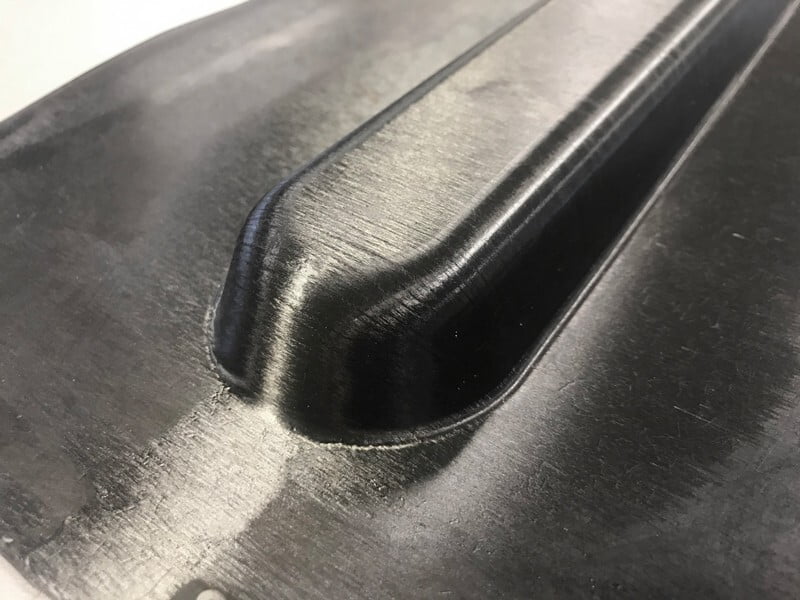Strong, lightweight material invented at UD could be industry disruptor
Article by Julie Stewart Photos | by Evan Krape and courtesy of the Center for Composite Materials | Video by Ally Quinn and Paul Puglisi | July 06, 2020
When airplanes and automobiles were newfangled inventions a century ago, they contained parts crafted from wood or metal. Today, aircraft and automobile manufacturers increasingly use components made from continuous fiber composite materials, which can be specially designed to be light, strong, and resistant to corrosion and wear. However, composites are usually more expensive, more complex to manufacture and less recyclable than lightweight metals such as aluminum.
That’s all about to change, because researchers at UD’s Center for Composite Materials (CCM) have created the world’s strongest short fiber composite material that can be stamped into complex shapes, just like sheet metal can be stamped, in less than one minute. The new high-performance material, known as TuFF (Tailored Universal Feedstock for Forming), can stretch up to 50 percent, achieve properties equivalent to the best continuous fiber composites used in aerospace applications and reduce part manufacturing costs. TuFF can also be produced inexpensively and sustainably from recycled composite parts or scrap carbon fiber manufacturers typically throw away and be reused to make high performance, high value materials and parts. (In the world of advanced manufacturing, “feedstock,” refers to organic materials developed and adapted in ways that serve a manufacturing process.)
TuFF was patented in June 2020 with 32 claims. According to the U.S. Patent Office, the claim(s) within a patent application clearly define the invention, its scope and what aspects are legally enforceable.
TuFF represents a paradigm shift in composites design and opens the door for composites to replace metals in a variety of applications in the automotive, aerospace, infrastructure, electronics industries and more. Many common products, from kitchen appliances to smartphones and more, are now made with stamped sheet metal, and manufacturers might someday use TuFF instead.





